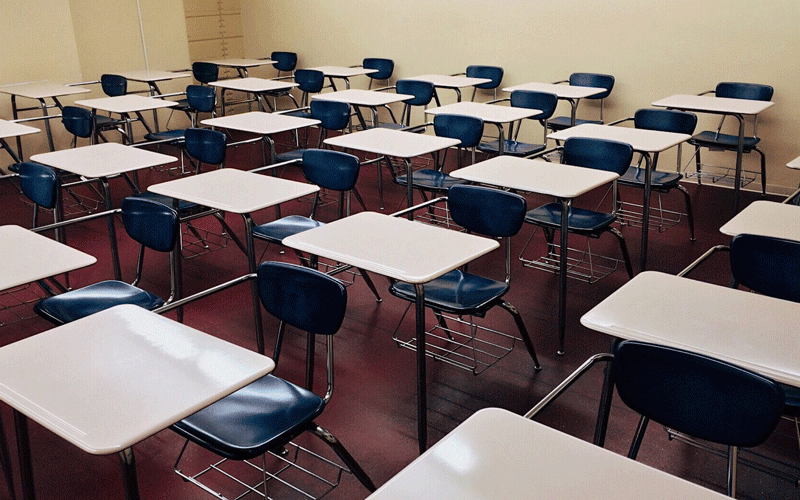
I once wrote about the need to unlock the value trapped within the school development committees and school development associations (SDC/SDA) and the message seems to have fallen on deaf ears or perhaps the leadership was focused more on other areas of greater need than the contents of that article.
It is indeed true that the country has a very good model in place (SDC/SDA) but, a lack of particular attention to these decentralised structures is resulting in our already strained economy losing millions of dollars through malpractices and maladministration within our schools.
The governance of the schools through the SDC/SDA is one key area that speaks to the constitution of Zimbabwe’s provision of devolution of power.
The government thus premeditated on the advantages of delegating and decentralizing authority in managing schools to communities long back.
This was supported by the enactment of the Education Act of 1987 as amended to accommodate parental involvement in education.
The government's commitment is shown by her leading role in coming up with further amendments to the Act which came into effect in 1991.
This paved the way to recognition of SDC for non-government schools, and SDA for government schools.
The Statutory Instrument (SI) 87 of 1992 further recommended that SDCs/SDAs were better placed to assist community participation in the operations and nurturing of the schools to achieve high-quality education.
- Call for reforms in schools’ governance
Keep Reading
The instrument gave the SDCs permission to develop their schools by providing the necessary conditions in the form of material and or non-material resources.
Furthermore, SI 70 of 1993 also signified more powers of SDCs/SDAs to develop their schools. The government’s expectation was to produce high-quality education through parental administrative involvement.
This article therefore presents six fundamental questions to unpack this interrogation and open up our mind-sets in the way we see these governance structures.
These questions are: Does the SDC/SDA involvement in school development documented achievements outweigh the unevenness within these structures?
Is there effective monitoring and evaluation of these devolved school’s governance structures?
Are these subsisting Acts still effective in the changes within the education sector and economic matrix?
To what extent do the SDC/SDA structures go to mobilise the resources for these schools? Are we as a country satisfied with the kind of developments in these schools and do they depict the amount of resources extended to them?
And finally, do we have capacity development provisions for these structures and a clear governance code of conduct for use within these institutions of learning?
These questions are the heads of arguments in this article and my serious voice of concern.
I, therefore through this publication try to interrogate the value (if any) and explore the current perceptions within our communities of involving the parents’ bodies in schools’ governance especially in Zimbabwe's ailing and recovering economy.
In my opinion, based on observations, most of these SDC/SDA structures are mere figureheads.
There is no value creation from most of the elected members due to various reasons that come about their political affiliation appointments.
Ironically, numerous scholarly research revealed that SDC/SDA has made significant achievements in infrastructure, resource provision, staffing, and fund mobilisation.
I strongly disagree with their assertions and findings.
My big question is if ever there was an exercise to evaluate what is claimed as an achievement is commensurate to the value of resources availed.
This article exposes the perceived achievements and challenges of SDC/SDA involvement in school development in Zimbabwe and calls for the school development committees or school development associations to be accountable to the parents that bestow responsibilities onto them.
It is an unquestionable fact that there are so many limitations engraved within SDC/SDA involvement in schools’ expected development.
The main limitation is the composition of these governance structures.
Most of these structures do not have qualified professionals in their diversity, which gives value to schools.
This has resulted in headmasters dominating and manipulating the decisions of these committees.
No wonder why a number of unfortunate school headmasters were arrested.
It is unbelievable that most of these schools have unqualified personnel employed as bursars.
This reflects some intentional moves by the schools’ administration given the statistics of degreed citizens without formal employment in the country.
The assumption is they want someone they may manipulate to abuse the resources of these institutions.
Nevertheless, I respect the claim that SDC/SDA is an important and essential component of a school considering the tangible (assets) and non-tangible (knowledge) achievements.
However, I challenge the policy makers especially the in-coming Primary and Secondary Education minister, to meditate about the need for reforms in education administration laws, re-design policies that stipulate the level of academic requirements that should be considered in the selection of SDC/SDA members and consider crafting the SDC/SDA governance code.
The final influential recommendation is for the Ministry of Primary and Secondary Education (MoPSE) to annually set aside a percentage of funds collected within these structures to induct or orient incoming SDC/SDA members to capacitate them with the pre-requisite skills and familiarity with relevant laws i.e. accounting, procurement, and other relevant technical trade skills relevant to guide schools positively.
Over the years, the following are some of the challenges I noticed were emanating from the School Development Committees (SDCs) governance in Zimbabwe:
Limited financial resources: SDCs often struggle with inadequate financial resources to support the development and maintenance of school infrastructure, purchase educational materials, and meet other operational needs. Insufficient funding hampers their ability to provide quality education and address the needs of the school.
Lack of training and capacity building: SDC members in the current composition lack the necessary training and skills to effectively carry out their roles and responsibilities.
This includes financial management, project planning, and implementation, as well as governance and leadership skills.
The lack of capacity can hinder the SDCs' ability to make informed decisions and effectively manage school affairs.
High poverty levels: Zimbabwe faces high levels of poverty, which affects the economic well-being of families and communities.
This translates to challenges in collecting school fees and contributions from parents, impacting the financial stability of SDCs and their ability to support the school adequately.
Inadequate infrastructure and resources: Many schools in Zimbabwe have inadequate infrastructure, including classrooms, sanitation facilities, and access to clean water and electricity.
SDCs often face challenges in mobilising resources to address these infrastructure gaps, negatively impacting the learning environment for students.
Limited community engagement: SDCs rely on community support and involvement to effectively carry out their responsibilities.
However, limited community engagement and participation pose challenges in mobilising resources, coordinating volunteers, and fostering a sense of ownership and responsibility for the school's development.
- *Langton Mutoya is an academic. He is writing in his personal capacity. Feedback: +263 77 270 2361 or [email protected]









